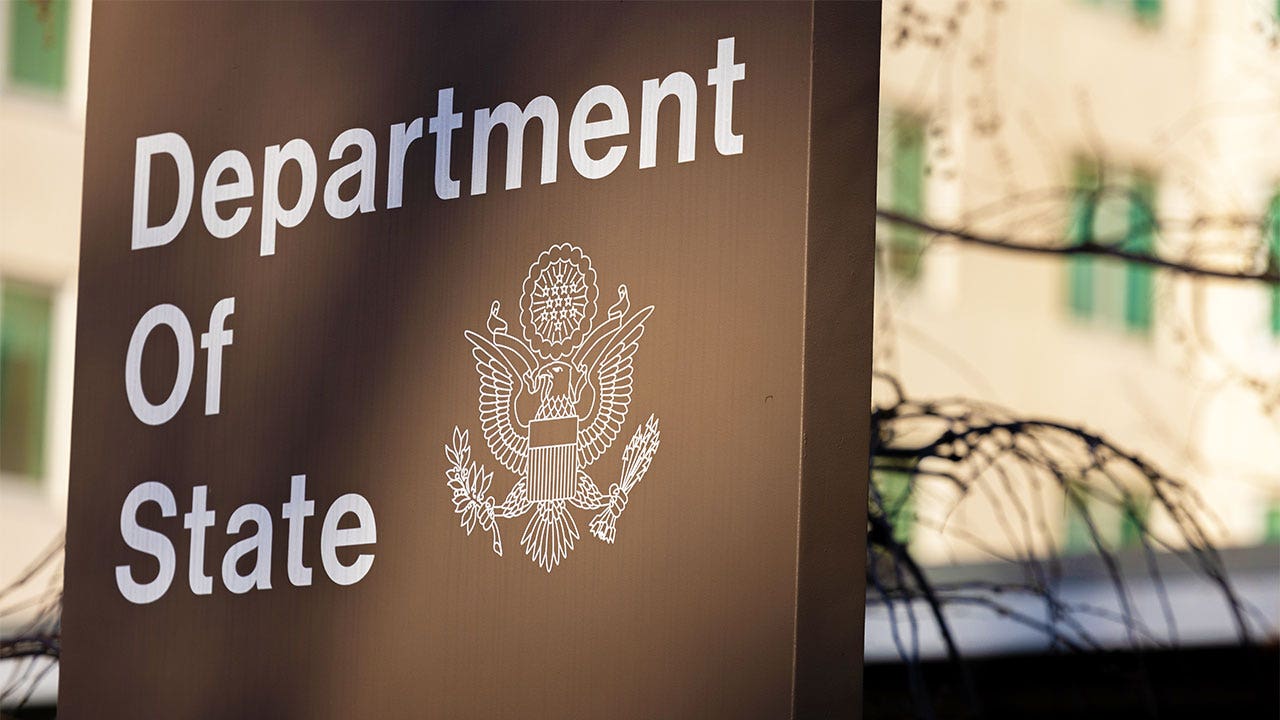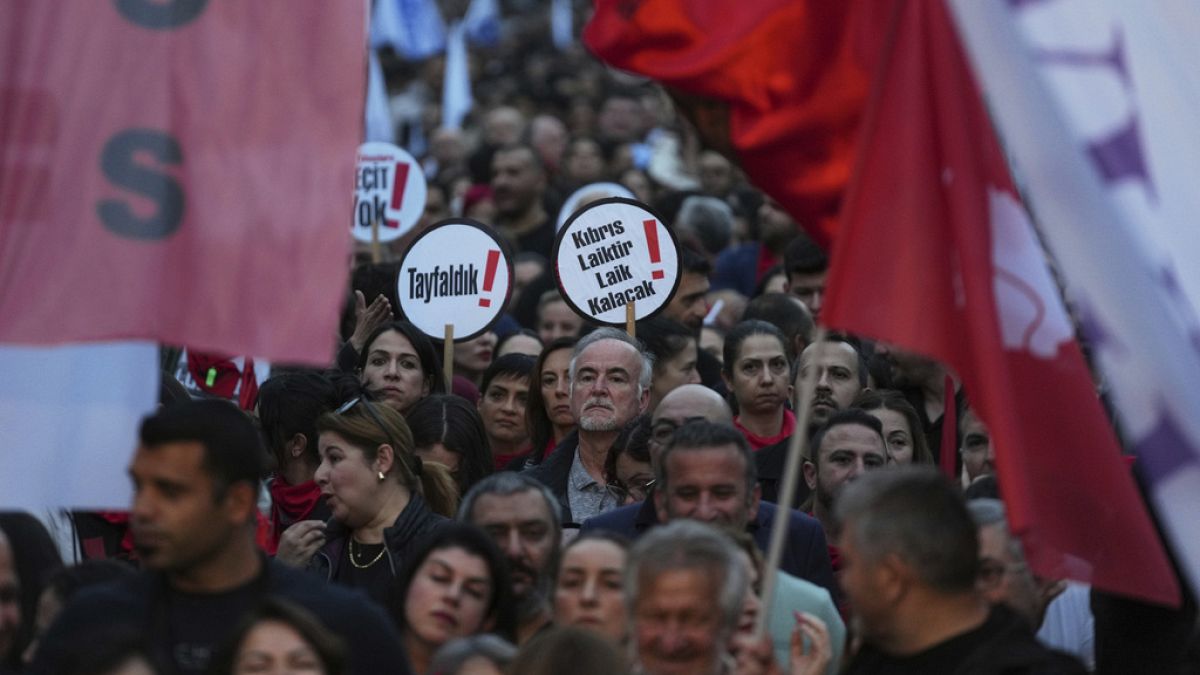Several thousands of Turkish Cypriots gathered in the northern half of the ethnically divided capital of Nicosia to protest against what they say is an attempt by Turkey to erode their secular roots and strengthen the hold of policial Islam over their society.
The protesters held up trade union banners and held placards reading “It won’t pass” and “Cyprus will stay secular” before gathering to attend a concert.
The protest is the latest in a series of demonstrations that leftist trade unions have organised to express their opposition to what they say is an attempt by Ankara to slowly change the staunchly secular Turkish Cypriot society into a more politically pliable community through the introduction of Islam into the education system.
The demonstrations began last month when the right-wing Turkish Cypriot authorities lifted a ban on wearing headscarves in high schools, but not on symbols of other religions.
Teachers’ trade unions, political parties and other leftist groups condemned the move as an encroachment into the strictly secular education system aimed at the eventual “Islamisation” of Turkish Cypriot society.
Elma Eylem, president of the Turkish Cypriot Secondary Education Teachers’ Union KTOEÖS and one of the protests’ key organisers, said that the change in statute allowing the wearing of headscarves in school is evidence of a bid at “social engineering” to force Turkish Cypriot society into submission according to the edicts of Turkey’s ruling AKP party.
“This issue is not a matter of freedom, headscarf or regulation. This issue is a step taken by the AKP in its efforts to deepen the political Islam domination over the Turkish Cypriot Community,” she said.
Eylem also said that a legal challenge to the lifting of the headscarf ban has been initiated at the Turkish Cypriot Constitutional Court, adding that their fight will be “a long-term struggle.”
The protest took place a day before a visit by Turkish President Recep Tayyip Erdogan to breakaway northern Cyprus where he will inaugurate a complex of government buildings.
Reviving stalled peace talks
The island nation of Cyprus has been split since 1974, when Turkey invaded following coup backed by the Greek junta which aimed at a union with Greece. The Turkish Cypriot declaration of independence in the island’s northern third is recognised only by Turkey, where it maintains around 35,000 troops.
Cyprus joined the European Union in 2004, but only the Greek Cypriot south where the island’s internationally recognised government is based enjoys full benefits.
Last Friday, UN Secretary General António Guterres announced the appointment of María Angela Holguín Cuéllar as his personal envoy on Cyprus, tasked with exploring ways to resume peace talks stalled since 2017.
Minor progress was made between the leaders of the two communities – Nikos Christodoulides and Ersin Tatar – in early April, as they agreed on a series of confidence-building measures like restoring neglected cemeteries and setting up a joint group of young people from both side of the divide to discuss issues relevant to them.



